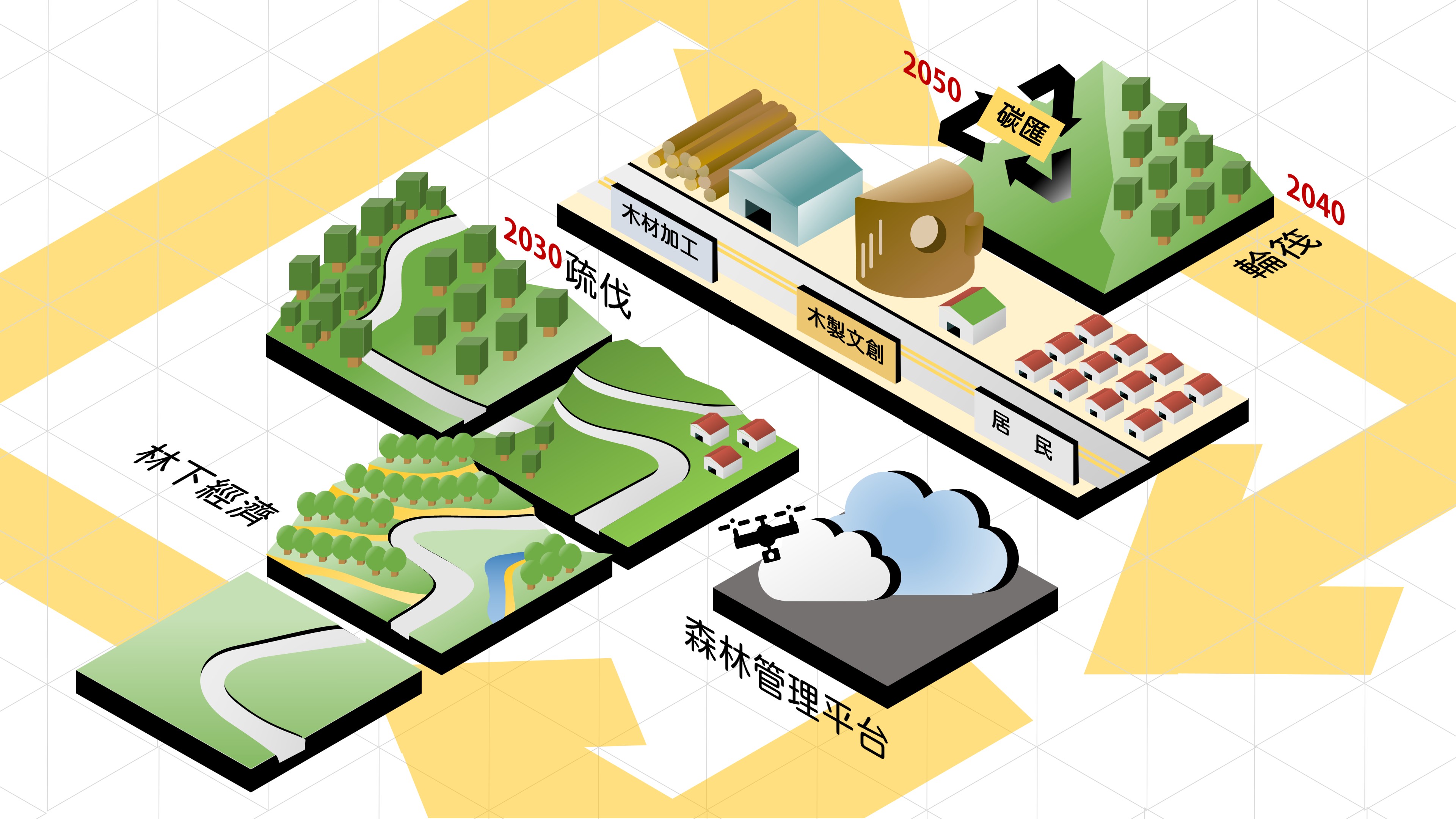Back
Grand Jury AwardLet Trees Make Things

Number:000171
Team's name:CoCoTree
Submission Date:2022.11.23
Work label:#Climate #Human #Health #Work
Taiwan has a forest coverage rate of 61%, which is twice the global average of 30.3%. With this abundant forest resource, we aspire to make Taiwan a benchmark country for sustainable forest management by 2040 through scientific approaches.
To achieve this goal, we propose a comprehensive forest management platform that fosters a circular economy for man-made forests and enhances their net carbon value. Despite having a substantial 61% forest cover in Taiwan, we must not overlook the current state of our forest environments. We need to assess whether our forests can sustainably thrive in the long run.
Let us take a closer look at the existing challenges and issues faced in managing man-made forests and the forestry sector:
- Taiwan's self-sufficiency rate for timber is less than 1%.
- Since the 1977 ban on logging, the forestry industry in the country has been gradually declining.
- During the growth process, trees are susceptible to natural factors or pest infestations, leading to decay. The lack of proper nurturing also affects the growth of surrounding trees.
- Trees act as carbon sinks, but their ability to absorb carbon dioxide peaks at around 20 years of age, after which it decreases with increasing tree age.
- Today's man-made forests, the trees are thin and densely packed, resembling utility poles.
20% of Taiwan's forests are man-made forests. We have always been educated about the importance of trees, and the notion that "cutting down trees" leads to problems like landslides and environmental degradation is deeply ingrained. But do we really need trees to grow endlessly without control?
Japan started promoting thinning in man-made forests in the 1980s, and its timber self-sufficiency rate increased to 34.8% in 2016. Japan has set a target of achieving a 50% timber self-sufficiency rate by 2025.
Trees are our good companions, and our vision and goals are not just about utilizing timber resources, but more importantly, about maintaining forest health and ensuring the sustainable management of the Earth's environment. If forests are left unmanaged, they will age, and without sustainable resource utilization, rural areas will age, and economic vitality will decline.
The Intree forest management platform utilizes low-orbit satellite communication to enable seamless transmission of forest information. Through resource satellites and drones, regular surveys of forests can be conducted to obtain information on road safety, slope stability, tree density, tree height, and more. By combining cloud-based deep learning algorithms, the platform can classify changes in tree species in different regions or competitive interactions between different varieties, providing various forest management information to enhance the safety and convenience of nurturing man-made forests.
We plan to implement thinning in man-made forests by 2030, allowing the trees to gradually grow, and monitoring slope stability. By 2040, we will initiate selective harvesting operations to address the shortage of Taiwan's national timber resources. Additionally, this approach creates new space and contributes to realizing the forest carbon sequestration function by 2050.
【View Full Work】
